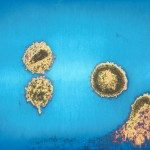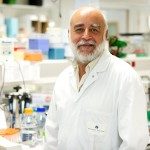Lien vers Pubmed [PMID] – 40300610
Lien vers HAL – hal-05061628
Lien DOI – 10.1016/j.medj.2025.100670
Med, 2025 Aug, 6(8):pp.100670. ⟨10.1016/j.medj.2025.100670⟩
Background There is currently no curative treatment for HIV-1 infection. However, some individuals (defined as posttreatment controllers) durably control viremia after the discontinuation of antiretroviral therapy (ART). Although the ability to achieve this HIV-1 remission status is enhanced by early treatment initiation, the mechanisms leading to posttreatment HIV-1 control remain unclear. Methods We retrospectively explored the immunogenetic characteristics of long-term posttreatment controllers from the ANRS VISCONTI study and persons monitored since primary HIV-1 infection in the ANRS PRIMO cohort and evaluated their influence on clinical parameters and outcome after ART discontinuation. Findings We identified a major histocompatibility complex (MHC)-related fingerprint favoring sustained HIV-1 remission. HLA-B∗35 alleles, which are associated with rapid progression to AIDS during natural HIV-1 infection, were paradoxically overrepresented among posttreatment controllers and had a positive impact on outcome after treatment discontinuation in people who began therapy during primary infection. Specifically, the influence of HLA-B∗35 alleles was observed when they were carried in combination with other HLA class I alleles expressing Bw4 and C2 ligands of killer immunoglobulin-like receptors (KIRs) in a genetic context that favors KIR education of natural killer (NK) cells (Bw4TTC2 genotype). Accordingly, posttreatment controllers with HLA-B∗35 alleles carry distinct KIR genotypes and NK cells. Conclusions The combination of HLA-B∗35 with Bw4TTC2 genotype, associated with KIR education of NK cells, was abundant among posttreatment HIV-1 controllers and promoted viral control after interruption of early-initiated antiretroviral treatment. These results support a role of NK cells in sustained HIV-1 remission.





